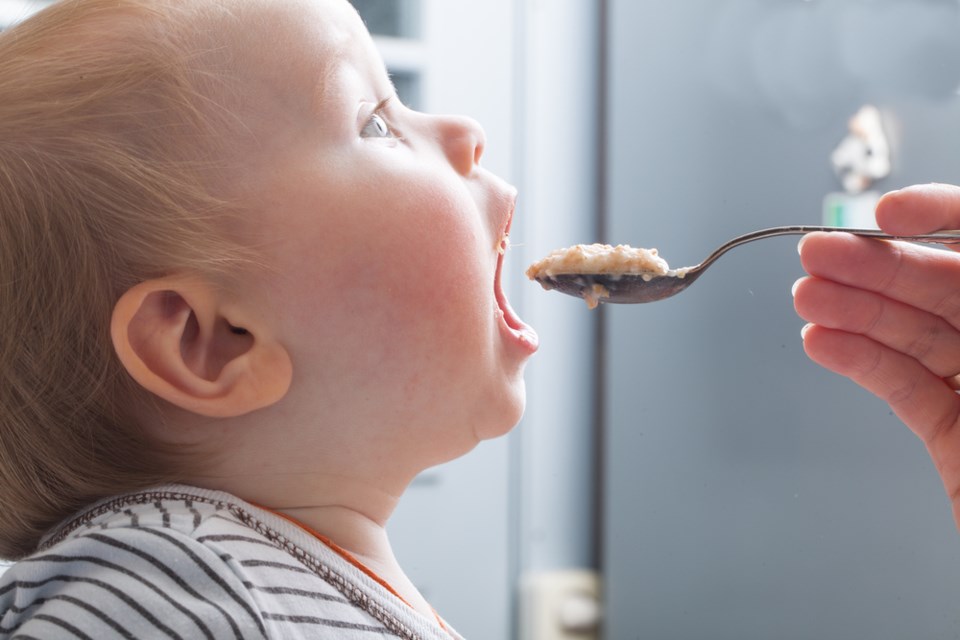The Public Library recently welcomed public health nutritionist and registered dietician Melanie Warken to give some information on babies and food, a lecture which covered a ton of useful information for new parents.
Warken spoke not only about what to feed your new baby but also the importance of when and how — as the feeding experience is more than just about getting nutrition into a child’s body.
Most babies begin taking solid foods around the six month age, but naturally, all babies develop at their own rate.
Warken advised parents to look for the signs that a child is ready to be in a highchair at the dinner table, taking in food: the child has good control of their head and neck, can sit up without any support, holds food in their mouth with their tongue, and shows an interest in food.
Part of the learning process for children is watching their parents: it becomes the parent’s responsibility to make feeding time for baby a positive experience.
Being engaged and listening to the child when they refuse to eat more can actually be beneficial because it gives the child an active role in their own eating habits. Similarly, having small children present at a regularly scheduled mealtime with the whole family can also encourage healthy eating habits.
At six months, introducing soft, puréed foods is recommended, even if it’s just a spoonful or two. As your child gets older, allowing more texture and more lumps is actually recommended because it will make the transition to real food much easier — by a year old, solid food should be the child’s primary source of nutrition.
Warken recommends being careful about relying on commercial baby food, as quite often it has added fats and sugars that have no nutritional value. Instead, she recommends just mashing up whatever it is the rest of the family is eating.
Warken recommends focusing on foods that are high in iron, like meat, eggs, and nut or seed butter. Babies don’t need juice or sweetened drinks; encourage water from an open cup, to quench thirst and develop fine motor skills.
Avoiding common allergy foods, like nut products, eggs, fish or milk, is not necessarily encouraged. Less than five per cent of babies have an allergy to food, and exposing their immune system to common allergens can actually help build some immunity.
Parents should avoid giving young children anything unpasteurized, as well as honey or uncooked sprouts because these foods tend to carry bacteria that could be harmful to a child’s underdeveloped immune system.
And, as always, Warken reminded parents to always be watching when children eat, and to make sure nothing is a choking hazard.
Warken offered more in-depth tips in the public session and recommended that parents with questions reach out — either in future sessions or by doing some research.
“I would recommend if parents are wanting more information, to make sure that they're going to credible sources of information around feeding their baby,” said Warken.
She offered the Canadian Pediatric Society’s website as a good resource, as well as the Dieticians of Canada’s Unlock Food website. Even pulling up saskatchewan.ca and searching “infant feeding” can give some helpful results. Warken also recommended staying in touch with a family physician or a public health nurse.




